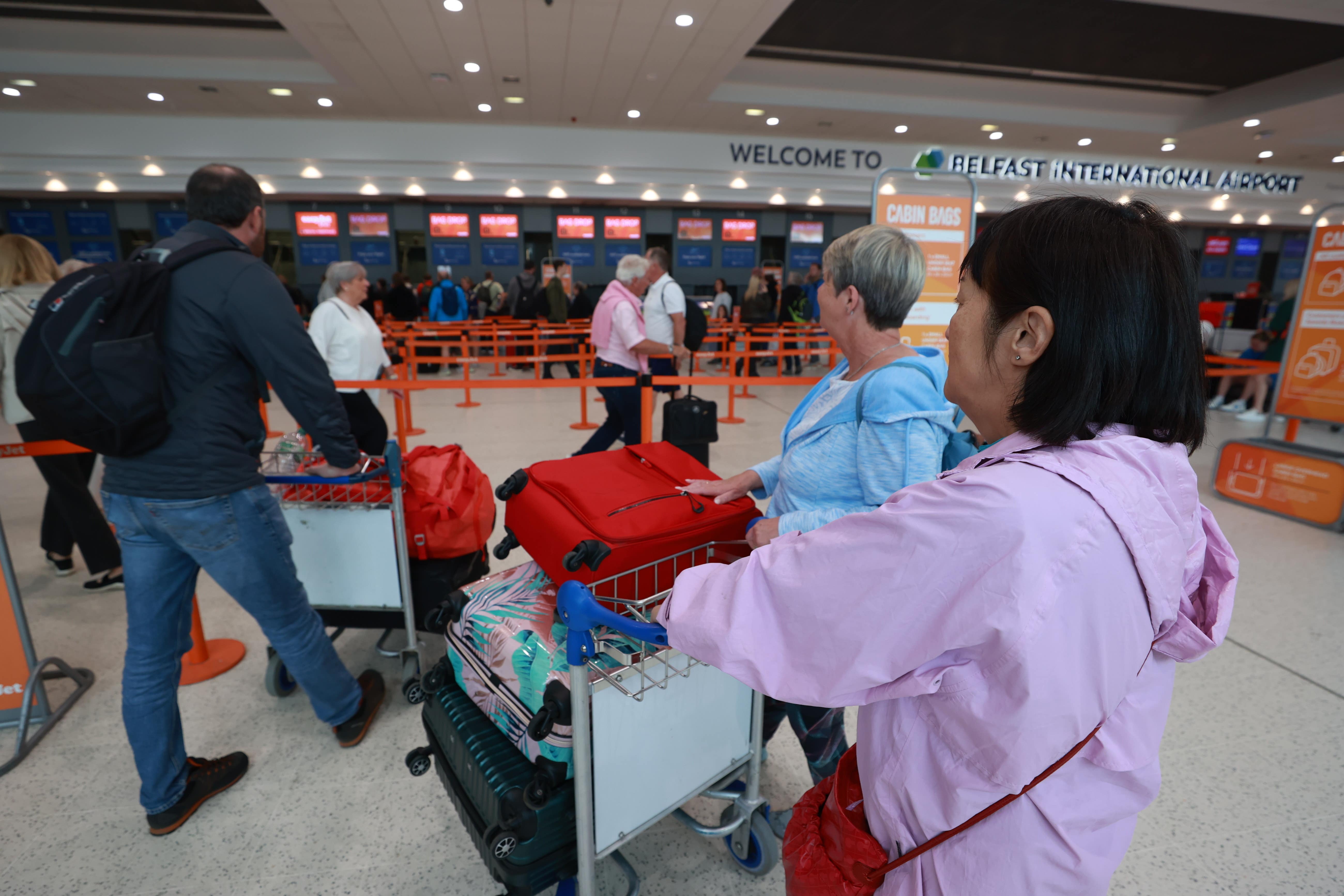Air traffic control chaos due to error with ‘one in 15 million’ chance
National Air Traffic Services chief executive Martin Rolfe said one of its systems failed after it ‘didn’t process a flight plan properly’

Your support helps us to tell the story
From reproductive rights to climate change to Big Tech, The Independent is on the ground when the story is developing. Whether it's investigating the financials of Elon Musk's pro-Trump PAC or producing our latest documentary, 'The A Word', which shines a light on the American women fighting for reproductive rights, we know how important it is to parse out the facts from the messaging.
At such a critical moment in US history, we need reporters on the ground. Your donation allows us to keep sending journalists to speak to both sides of the story.
The Independent is trusted by Americans across the entire political spectrum. And unlike many other quality news outlets, we choose not to lock Americans out of our reporting and analysis with paywalls. We believe quality journalism should be available to everyone, paid for by those who can afford it.
Your support makes all the difference.The technical glitch which caused widespread disruption to flights last week was a “one in 15 million” occurrence, an air traffic control (ATC) boss said.
National Air Traffic Services (Nats) chief executive Martin Rolfe said one of its systems failed after it “didn’t process (a) flight plan properly”.
The plan submitted by the airline – which has not been named – was “not faulty”, he added.
The changes we're making here will prevent this incident from happening ever again
The problem led to Nats being unable to process flight plans automatically for several hours on August 28, a bank holiday Monday and a peak period for air travel.
The subsequent switch to manual processing meant the average number of plans it could handle dropped from around 400 per hour to as few as 60, leading to restrictions on flights to and from UK airports.
More than a quarter of flights were cancelled that day, affecting around 250,000 people.
Cancellations continued for two more days as planes and crews were out of position.
Asked what the odds of this happening were, Mr Rolfe replied: “We know it’s at least one in 15 million, because we’ve had 15 million flight plans through this system and we can be absolutely certain that we’ve never seen this set of circumstances before.”
In a preliminary report shared with Transport Secretary Mark Harper, Nats did not identify the route of the flight plan which led to the chaos but stated the aircraft was scheduled to enter UK airspace during an 11-hour journey.
Airlines’ flight plans feature waypoints, which represent locations and are identified by a combination of letters and numbers.
The flight plan which caused last week’s disruption was submitted to Eurocontrol – which oversees ATC across Europe – before being passed on to Nats.
The process led to the plan featuring two waypoints around 4,000 nautical miles apart but with identical names.
This meant Nats’ software was unable to extract a valid UK portion of the flight plan and reacted by shutting down.
A back-up system followed the same steps and also stopped working.
Nats said an “operating instruction” has been put in place to allow the “prompt recovery” of the system if there is a repeat of these circumstances. A “permanent software change” to prevent it shutting down in such an event is expected to be implemented in the coming days.
Mr Rolfe said: “I’m very confident that the changes we’re making here will prevent this incident from happening ever again.”
The Civil Aviation Authority (CAA) announced it will launch an independent review into the meltdown.
Details of this will be published by the end of September and the inquiry is expected to take around three months.
CAA joint-interim chief executive Rob Bishton said: “The initial report by Nats raises several important questions and as the regulator we want to make sure these are answered for passengers and industry.
“If there is evidence to suggest Nats may have breached its statutory and licensing obligations we will consider whether any further action is necessary.”